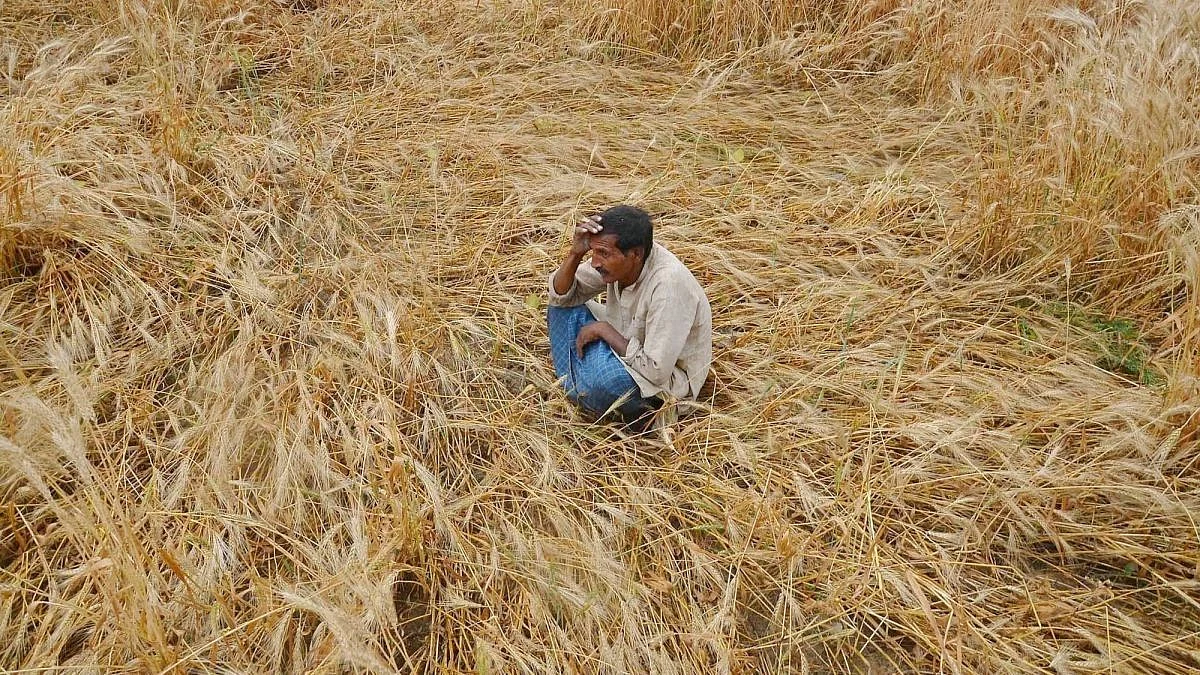'Govt Committed to Providing Food Security': India Bans Wheat Exports, Gets Flak
The official statement was issued by the Directorate General of Foreign Trade.

advertisement
The central government on Friday, 13 May, prohibited the export of wheat with immediate effect, in a bid to ensure food security in the nation. The move has garnered criticism from the Opposition and the G7 group of nations.
"The Government of India is committed to providing for the food security requirements of India, neighbouring and other vulnerable developing countries which are adversely affected by the sudden changes in the global market for wheat and are unable to access adequate wheat supplies," the official statement issued by the Directorate General of Foreign Trade (DGFT) read.
Export shipments with an irrevocable letter of credit (ILOC) that has been issued on or before the date of the notification would be allowed.
The government is also allowing exports to other countries that import wheat to meet their food security needs, based on requests made by their governments and prior permission by the Government of India.
There has been a huge crop loss recorded in the country due to the heatwave in March.
The statement comes as the Ukraine war, which began in February, enters the twelfth week and the supply from the Black Sea has dropped in the global market. India, the world's second-largest wheat producer after China, has been the most sought-after since the conflict caused a food shortage.
"The Centre will send trade delegations to Morocco, Tunisia, Indonesia, Philippines, Thailand, Vietnam, Turkey, Algeria and Lebanon for exploring possibilities of boosting wheat exports from India. India has set a target of a record 10 million tonnes of wheat in the 2022-23 amid rising global demand for the grain globally," a government statement said on Thursday.
Prime Minister Narendra Modi, during his recent visit to Germany, acknowledged the global shortage of wheat and said that the farmers of the country "have stepped forward to feed the world."
"Whenever humanity is faced with a crisis, India comes up with a solution," he said.
Opposition, G7 Criticise Wheat Export Ban
The Congress on Saturday hit out at the Centre over the wheat export ban, terming it an anti-farmer measure. Former Union finance minister P Chidambaram said inadequate procurement of wheat might have driven the government to take such a decision.
"It is not that wheat production has come down. It is more or less the same. In fact, it may be marginally more. Yesterday, I was told by the Chhattisgarh minister that they have been able to procure 97 lakh tonnes of paddy. So if procurement had taken place… there would not be any need to ban the export of wheat," he said.
Further, agriculture ministers from the Group of Seven (G7) industrialised nations on Saturday condemned India's decision to ban unapproved wheat exports.
"If everyone starts to impose export restrictions or to close markets, that would worsen the crisis," German agriculture minister Cem Ozdemir was quoted as saying by news agency AFP at a press conference in Stuttgart. "We call on India to assume its responsibility as a G20 member," said Ozdemir, whose country holds the rotating presidency of the group.
(At The Quint, we question everything. Play an active role in shaping our journalism by becoming a member today.)